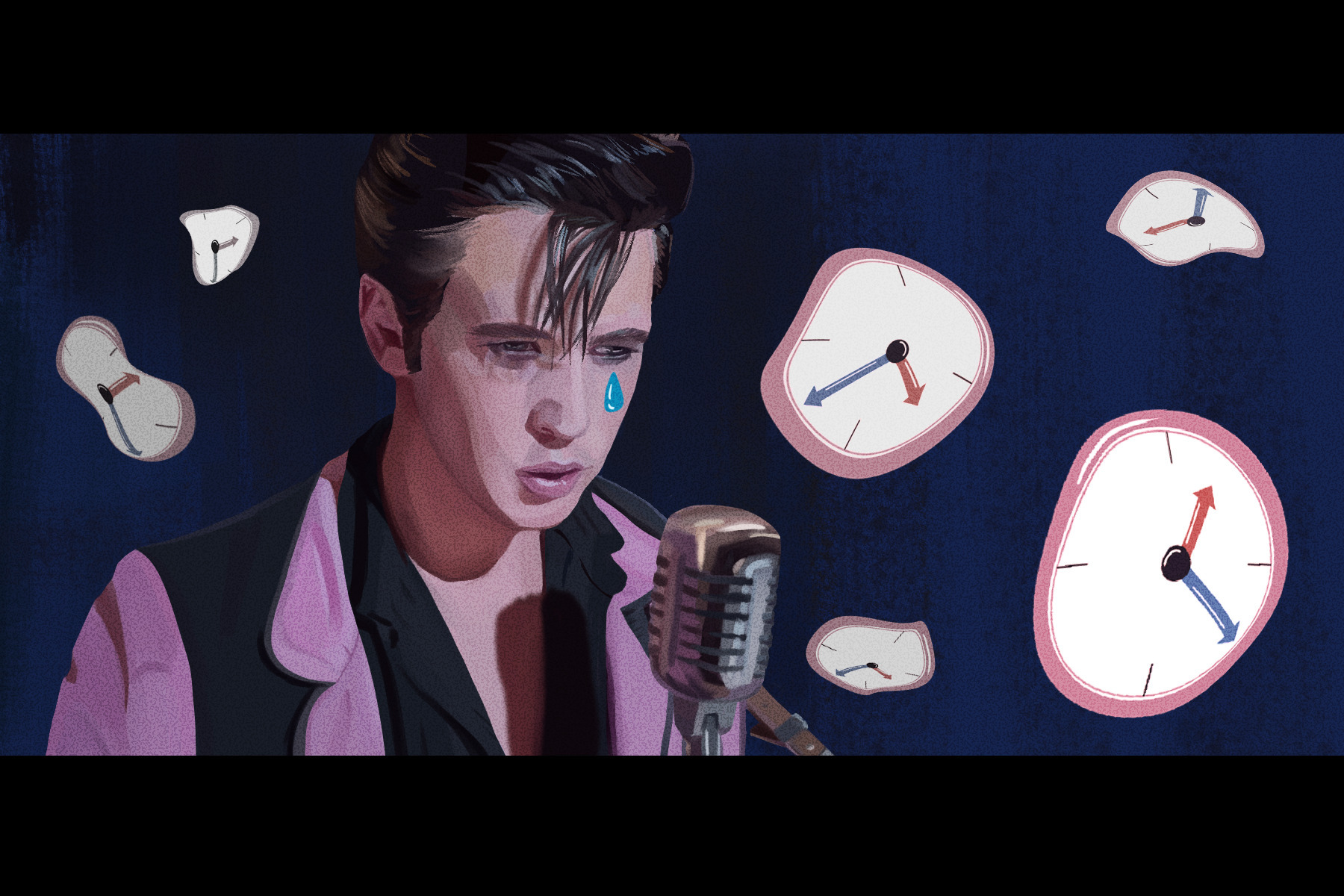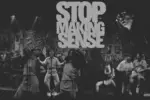The trailer for Baz Luhrmann’s 2022 biopic honoring the King of Rock ‘n’ Roll — one of far too many Oscar-baiting musical biopics following the success of 2018’s “Bohemian Rhapsody” — seemed to check all the right boxes to merit crowd-pleasing success: it’s narrated by Tom Hanks, showcases a vulnerable yet unrelatable rise to fame, cleverly flashes gaudy costumes and grabs the viewer’s attention with the greatest hits.
While the glossy trailer fulfilled all the criteria, it failed to answer one question: Why was another movie made about the Jailhouse-worthy Elvis Presley in 2022? There have already been five biopics centered on and romanticizing Elvis since his 1977 death — none of which focus on his appropriation of Black music and the grooming of 14-year-old Priscilla Presley.
What is commendable about both trailers for Luhrmann’s iteration is that there were probably three scenes that reference the influence that Black sound had on Elvis. He’s surrounded by Black supporting characters, Black music and Black dance all throughout the trailer.
Yet including this monumental influence on his career is just that in the film — a supporting element. In one trailer, he’s even told that he won’t go to jail because he’s “a famous white boy.” Clearly there is a level of race commentary and maybe even reckoning within Elvis’ character.
I wouldn’t be surprised if the movie inserts fictional scenes showing a convenient recognition of the Black community from Elvis that audiences never saw. Perhaps the film will reveal that Elvis had an awareness of his white privilege and somehow worked tirelessly to uplift the Black artists that contributed to his success — we just somehow never knew about it.
This effort to rewrite history in biopics today isn’t unprecedented. The 2019 biopic “Judy” inserted charming interactions between Judy Garland and a gay couple that goes to jail for being public with their sexuality.
While these scenes are charming, they’re intended to be crowd-pleasing; this fictional incident took the place of more nuanced, real-life interactions between Garland and the LGBTQ+ community. These scenes felt highly produced and continued to prove that the wave of biopics will always opt to romanticize instead of choosing to tell real stories that hold their subjects accountable.
While the stories of flawed artists of decades past could do with some polishing for modern audiences, it’s a shame that a more honest approach wasn’t taken. Certainly not every biopic produced today should be about saints who did everything right by today’s standards. We can tell the stories of problematic and privileged individuals, but if we don’t tell those stories accurately and responsibly, what is even the point?
Biopics today fully embrace their subjects, which is understandable being that they are the protagonists of their projects, but in efforts to portray and romanticize the lives of these figures, there’s a loss of honesty. When the flawed and problematic actions of the film’s subject are ignored in the storytelling, they will then go ignored by the audience.
While Luhrmann’s film may address how Black art contributed to Elvis’ career, I’m concerned that it will be packaged beautifully without providing any noteworthy commentary that truly holds him accountable.
If this was the intended point in the film, I truly believe it would have been even more refreshing for the movie to focus on the Black artists, music and sound entirely. Why does the longtime influence of Black art on popular music have to be told strictly through the lens of one of the most notable white appropriators?
Moreover, based on the content of the trailers, it’s clear Elvis’ wife Priscilla plays a minor and entirely supporting role — one that mirrors the role Priscilla Presley played in her 14 years with Elvis. When he was 24, Elvis met 14-year-old Priscilla on an Air Force base.
Finding herself deeply involved with a grown man as she was just entering high school, Priscilla later wrote for People Magazine in 1985, “He molded me into his woman. I wore the clothes, hairstyle and makeup of his careful choosing.”
Their relationship was defined by control and characterized by grooming. Priscilla has, of course, reflected on their relationship with nuance. She’s spoken against his treatment of her but also talked about it more favorably — which makes her heavy involvement in the 2022 film more complicated than perhaps empowering.
It’s terrific she has a level of agency now that she oversees much of his estate and the maintenance of Graceland. Only her involvement worries me, as the trailers seem more passive about the telling of their relationship.
Satisfying Elvis’ original wishes, the fictional Priscilla appears only to support him and stand at his side dressed and acting exactly as he prescribed. It doesn’t appear that the grooming will be addressed, or that her character will possess any of the agency Priscilla has since gained over their relationship.
This once again feels like a lost opportunity for responsible storytelling but also creativity. The effort to sideline the untold aspects of Elvis’ life in favor of showcasing an entertaining and romanticized look into his life, as opposed to an honest and accurate one, is mightily disappointing.
The release of an Elvis biopic in 2022 is admittedly puzzling. Certainly “Bohemian Rhapsody” fueled studios to make musical biopics that could chase its success. Only, Queen’s story was untold whereas Elvis’ is not — Elvis’ story has already been told many times.
This feels like a movie that would have thrived decades ago, and that’s because it did — it was told multiple times since his 1977 death. Kurt Russell played Elvis just two years after Presley’s passing in a film that shared the 2022 film’s title. It seems this film’s story has already been told and feels too familiar.
The repackaging of these historic moments of his life does more than just make it a charming movie that garners awards and does well at the box office, but it is in fact entirely destructive to audiences. Grooming children and using privileges to appropriate and benefit from artists of color are offenses that never stopped with Elvis — he wrote the playbook.
As a result, telling a romanticized story that ignores the problematic nature of these elements lets the current culture follow in his footsteps again and again. This film has the potential to be a raw and honest conversation about Elvis Presley’s rise to fame, career, art and problematic behavior. Instead, it is likely to repackage the same story with new layers of glossy finish for modern audiences, box office receipts and awards. A great story doesn’t have to have a perfect protagonist, and the choice to ignore any wrongdoing of an influential, real-world figure is beyond irresponsible.















